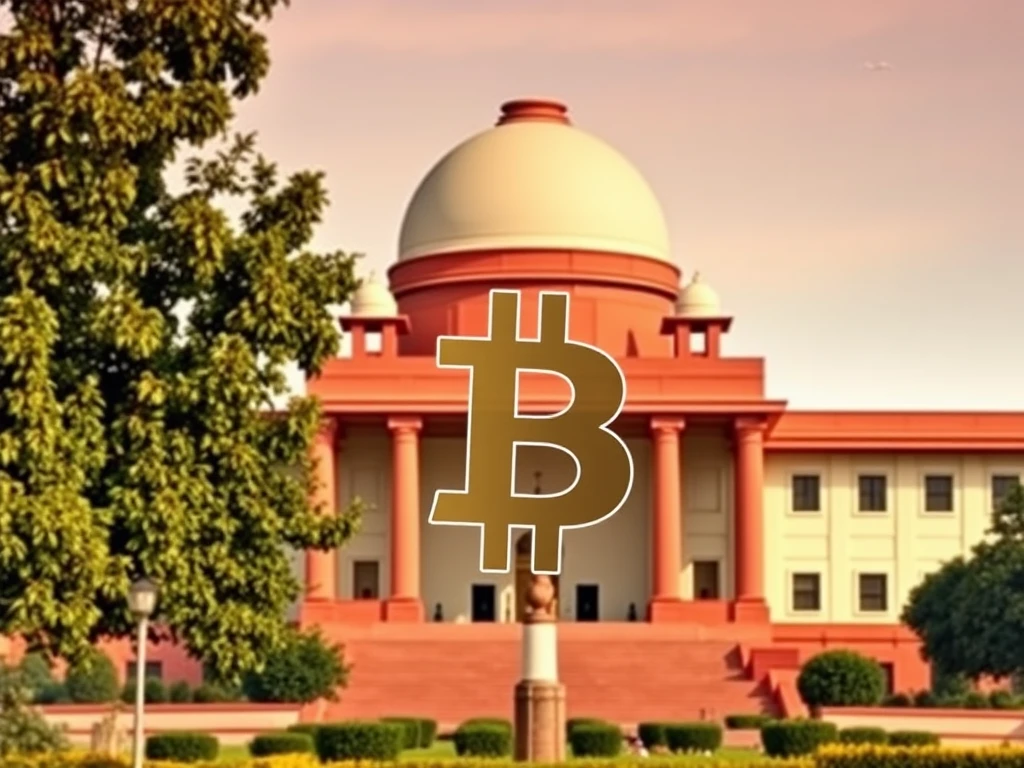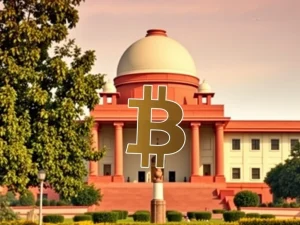Urgent: Supreme Court India Crypto Call for Regulation Amid Economic Risks

The landscape of digital assets in India is under intense scrutiny. Recently, the **Supreme Court India crypto** discussion took center stage, with judges expressing significant concerns and urging the government to establish clear rules for cryptocurrencies.
Why is India Crypto Regulation So Crucial?
During a recent hearing, India’s Supreme Court questioned the government’s approach to digital assets. Justice Surya Kant highlighted a key paradox: the government taxes cryptocurrencies like Bitcoin but has not yet implemented comprehensive regulation. This situation, according to the court, poses economic risks.
Key points raised by the Supreme Court:
- Cryptocurrencies represent a significant ‘parallel economy’.
- Lack of regulation poses a ‘danger to the economy’.
- Taxing crypto at 30% implies recognition, therefore regulation should follow.
The Paradox: Crypto Tax India vs. Regulation
For some time now, the **crypto tax India** framework has been in place, requiring individuals to pay a flat 30% tax on gains from digital asset transfers. However, this fiscal recognition has not been matched by a clear regulatory framework governing their usage, trading platforms, and underlying technology. The Supreme Court’s remarks underscore the judiciary’s view that taxation without regulation is insufficient to manage potential risks.
Indian Government Crypto Response and Future Steps
In response to the Supreme Court’s pointed questions, the Additional Solicitor General, representing the **Indian government crypto** stance, indicated that the government would take instructions and potentially review the current regulatory situation. This suggests that the Supreme Court’s intervention could prompt movement towards drafting or implementing more specific legislation for the crypto sector in India.
Bitcoin India Usage and Misconceptions
The hearing also touched upon the growing usage of assets like **Bitcoin India**. A lawyer highlighted its global adoption, although some specific examples given (like easily buying a car with just one Bitcoin everywhere in Europe) might be less common than suggested. There was also a notable misunderstanding regarding Satoshi Nakamoto, Bitcoin’s pseudonymous creator, who was incorrectly stated to be from Japan.
Addressing Concerns Over Misuse
A significant concern raised by the court was the potential for misuse of cryptocurrencies in illegal activities. While the idea of ‘counterfeit Bitcoin’ is technically impossible due to its blockchain nature, the concern likely stems from the pseudonymous nature of transactions potentially being exploited for illicit finance. The court stressed the need for a system of rules to govern these assets to mitigate such risks.
Conclusion: A Push Towards Clarity
The Supreme Court’s strong remarks serve as a significant push for the **India crypto regulation** framework to move beyond just taxation. By highlighting the economic dangers and the logical inconsistency of taxing an asset without regulating it, the court has placed pressure on the Indian government to provide much-needed clarity and legal structure for the rapidly evolving world of cryptocurrencies in the country. This development is crucial for investors, businesses, and the broader economy.










